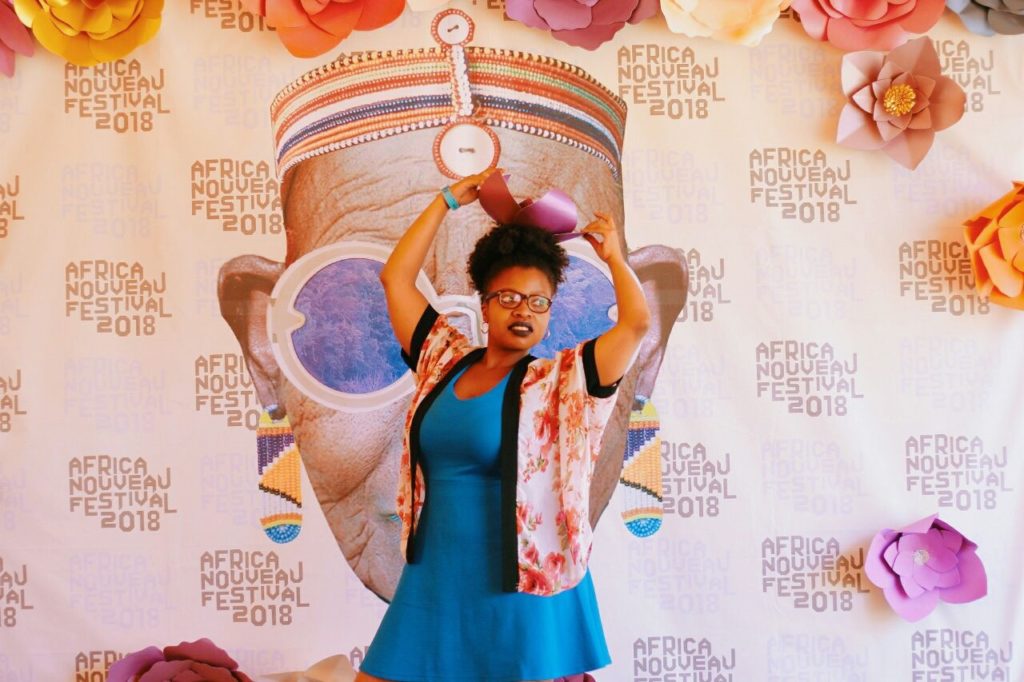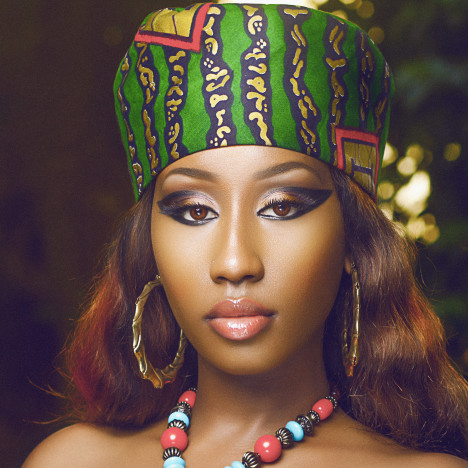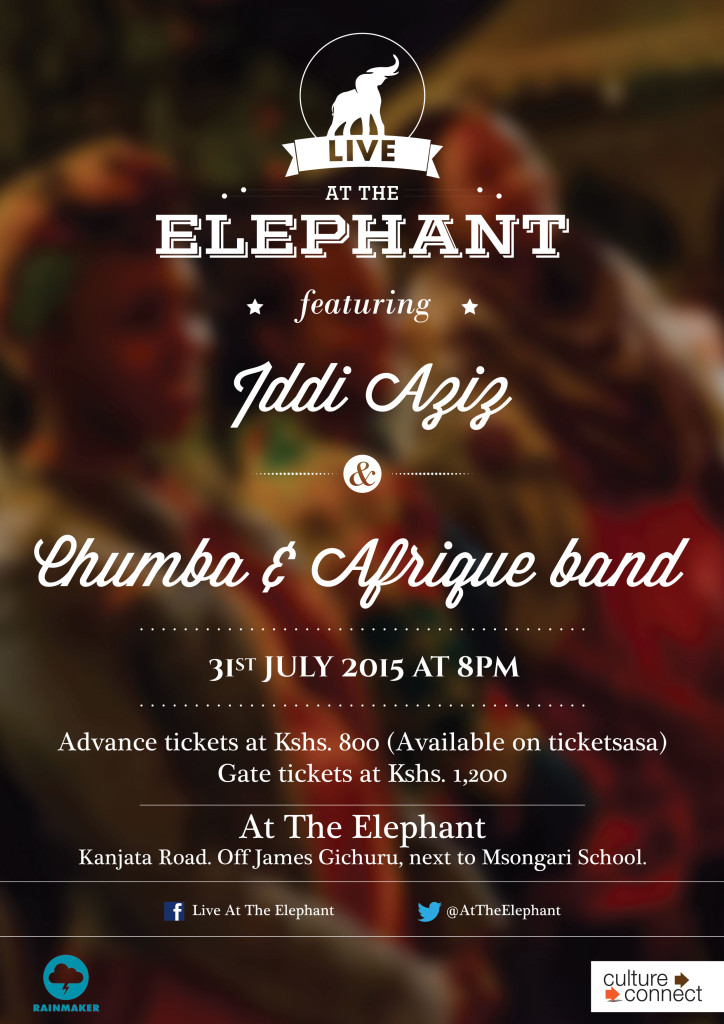Twaweza Live: Yes to Celebrating Kenyan Music
The ongoing Twaweza Live concerts taking place around the country have reminded me of my former life when I seriously thought I could be a musician. It’s not that I think I cannot be one now, but it’s not as serious a thought as before. I loved music so much that I would look for any excuse to sing at the top of my lungs and I especially loved having an audience, so I would open the windows of the living room, stick my head out and sing so all the neighbours could hear me. This love for music saw me constantly on stage in school plays and musicals and eventually studying music in high school.
I considered studying music at university but the career prospects beyond teaching were minimal and so I gave it up. Though I did continue dabbling in it with a stint in a band and singing in the church choir. In a way, I suppose I am slightly jealous of those who now have the opportunity and the support to try this music thing. If I had had some of these opportunities I may have perhaps been a little braver.
I know this is going to sound weird, but I distinctly remember the first time I heard music. I probably had heard music before, but it hadn’t registered until this moment. I was 6 years old and I walked into my parents’ bedroom and put on a record. It was the Thriller Michael Jackson record and the music hit me like an electric shock. It was like I had discovered a kind of paradise in music and I became an addict. My parents would lock their room when they left for work, but I would drag a chair to the bedroom door, stand on it on tiptoe and get the key and spend the day playing through records from Mariah Carey, Madonna, Whitney Houston, Them Mushrooms, Prince.
Strangely enough, my introduction to African music came later than my introduction to American music. It was in the form of my dad’s tapes of Les Wanyika, Kanda Bongo Man (who I saw live in concert with a cousin who carried toddler me on his shoulders to see the stage and we got into big trouble for it but that’s another story), Mbilia Bel and Koffi Olomide.
It was later that I would hear Kenyan music, starting with Gospel music from watching Joy Bringers and listening to classics from Daudi Kabaka, Fadhili Williams and Them Mushrooms and the hits from Five Alive, Suzanne Kibukosya, Milele, Swahili Nation and Hardstone. I have a small confession to make here – I went to Riara and Samawati Records was in the school thanks to the fact that Suzanne was the Gachukia’s daughter. So yes, heading to the dining hall for lunch meant spotting celebrities heading to the recording studio and it made my day every time.
The Homeboyz, Ogopa and Calif eras revolutionized Kenyan music and defined my coming of age. Longombas, Nicki, E-Sir, Nameless, Tatuu, Kleptomaniax, Amani, Big Pin, K-Rupt (rest in peace), Jua Cali, Prezzo, Mr Googz, Vinnie Banton, Mr Lenny, Wahu, Necessary Noize (Wyre and Nazizi), Habib, Manga, Deux Vultures, Longombas, Gidigidi & Majimaji, Nonini, P-Unit among others. You know how music can form the borders of certain moments in life or in history? That is true for a lot of the music from the artistes I’ve mentioned. Everything from my first boyfriend, family vacations upcountry, receiving my KCPE results that appeared in the newspaper, to the elections when an optimistic fever had captured the country are all peppered with this music.
The never-ending conversation about Kenyans appreciating Kenyan artistes and the ability for Kenyan music to compete on the world stage as successfully as our brothers and sisters from Nigeria, South Africa and Tanzania have managed, is a long winding one. Sure, there could be more airplay of Kenyan music and more corporates and brands could support Kenyan artistes and government absolutely must implement policies support Kenyan art.
All that is being said is valid but looking around, Kenyan music is being produced and Kenyan artistes are creating and thriving. I would rather look at the glass as half full and look at the growth of the Kenyan music scene with an explosion of music being produced thanks to developments in tech and the internet and the vibrant festival and live music gigs all over the city. The support of corporates such as Safaricom, has played a big role in the growth of Kenyan music. Safaricom has been responsible for Niko Na Safaricom Live, Skiza, the Songa app, Safaricom Jazz and Twaweza Live that have seen artistes access a bigger audience and make money off their music.
I’m not sure what exactly the future holds for Kenyan music but there’s cause for excitement. There are so many artistes pushing the envelope and putting out good music such as Sauti Sol, The Kansoul, Fena Gitu, Elani, Vivian, Ayrosh, Khaligraph Jones, Octopizzo, Naiboi, Mercy Masika, Victoria Kimani, Phy, Bahati, Wangechi and others that have been in the game and still going strong like Wyre, Nameless, Redsan, Eric Wainaina and Jua Cali. The music is also diverse with everything from jazz to hip-hop, afro pop, afro soul and variations of house and EDM being produced. With local and global interest growing, it’s a fantastic time to be an African artiste.
I’ll be following both the Twaweza Live concerts to discover new artistes and new music. It’s really encouraging to see so many young people that are creating and taking a chance on their art. I have a feeling that with continued support and access to resources to create and consume Kenyan music, the Kenyan music scene is set to be incredibly vibrant.
http://www.mwendengao.com/2018/07/30/twaweza-live-yes-to-celebrating-kenyan-music/MusicKenyan music,Niko Na Safaricom Live,Skiza,Songa by Safaricom,Twaweza Live





Leave a Reply